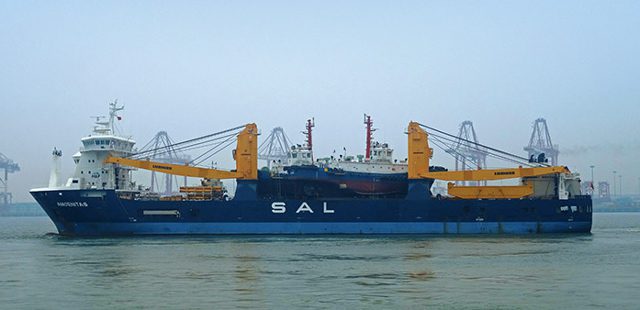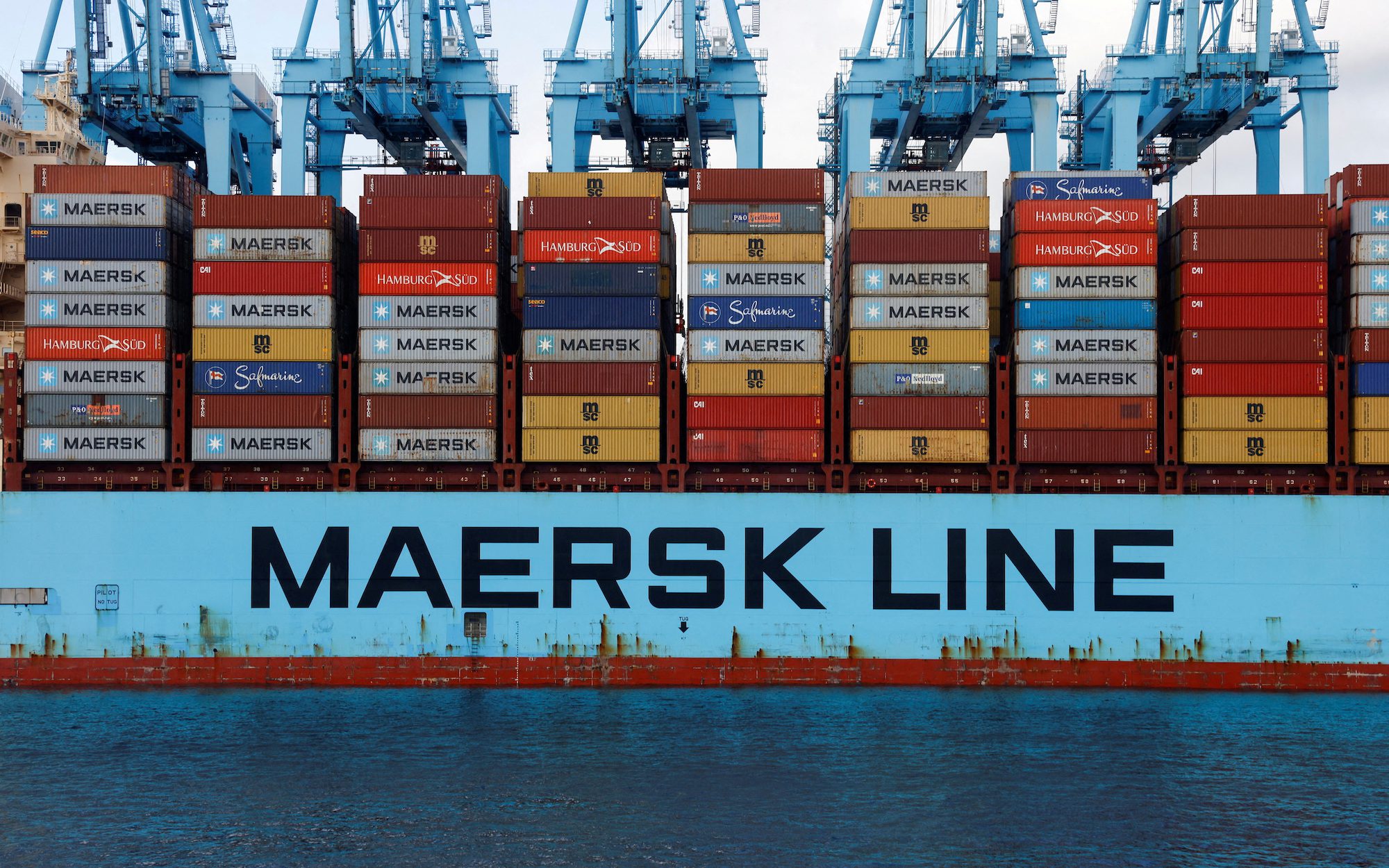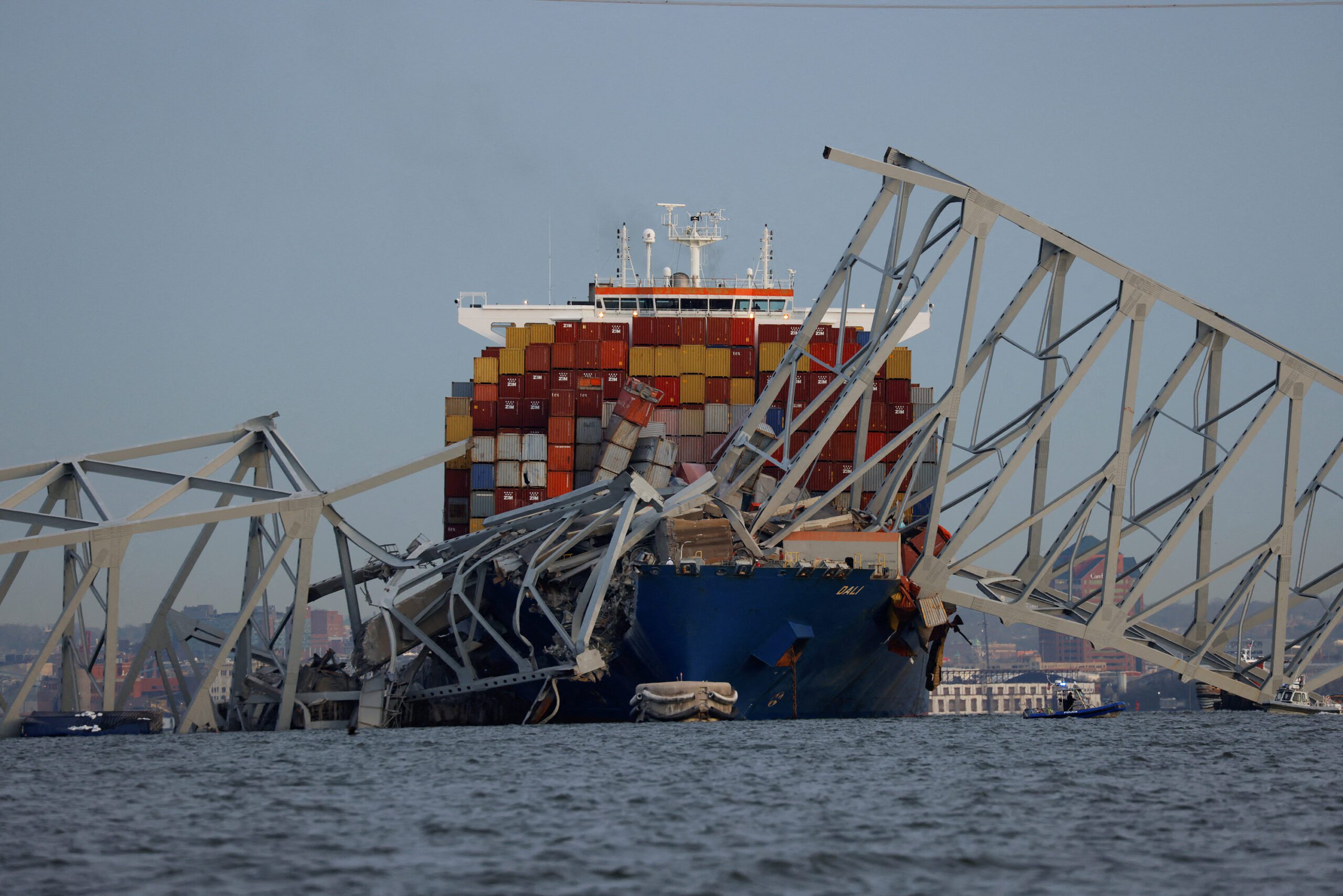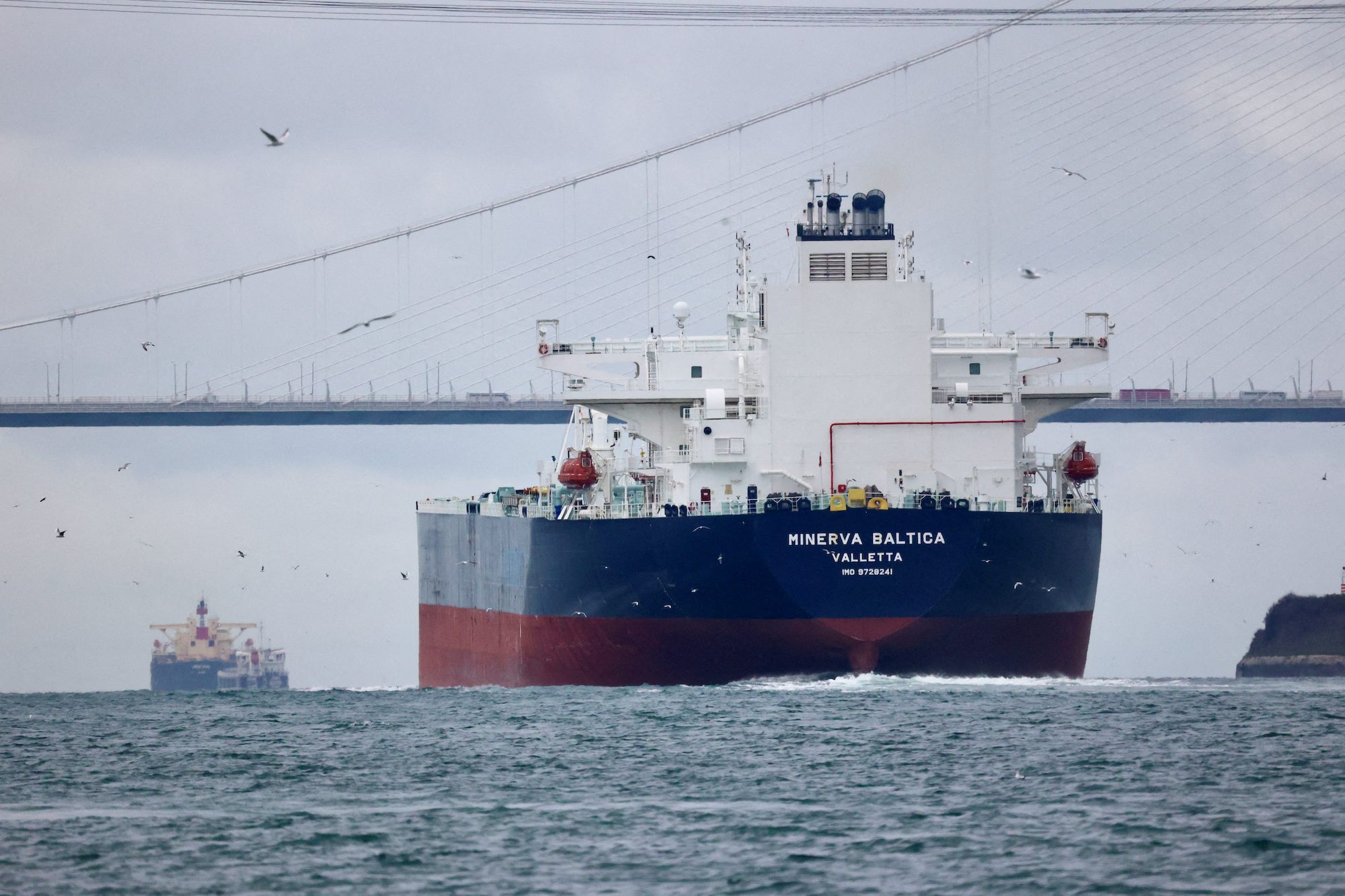MV Amoenitas, image: SAL Heavy Lift
After signing a long term charter with Harren & Partner Schiffahrts for a pair of Type 116 heavy lift cargo vessels, SAL Heavy Lift is fortunately keeping their vessels quite busy. MV Calypso and MV Amoenitas each with the ability to carry cargoes weight upwards of 900 metric tons, have their first voyages already booked solid, according to a statement today by SAL. The two ships were built at Taizhou Kouan Shipyard 2011 and 2010, respectively.
MV Amoenitas, with her pair of 450 metric ton cranes left Masan, South Korea recently with a cargo of engines heading toward the port of Mangalia in the Black Sea. Along the way she picked up three 685 ton tugboats from China and delivered them to Myanmar. MV Calypso recently loaded a reactor weighing over 500 metric tons in Thailand for delivery to the United States in August.
The company noted in a phone conversation that high demand from their clients prompted their move to add the two ships via a charter arrangement with Harren & Partner . They could not disclose the details of the arrangement however.
While SAL has seen extremely high fleet utilization this year, German shipping companies Briese and Harren & Partner founded BHS Pool Weser-Ems, a new heavy lift shipping pool consisting of 15 ships, all managed by BBC Chartering and Combi-Lift – both partially-owned subsidiaries of Briese and Harren & Partner, respectively.
Briese and Harren & Partner noted in May that they “see no alternative to the consolidation of the supply side.” The two companies appear to be huddling together as German neighbors to help take advantage of their respective strengths and advantages inherent within a larger fleet to try and beat the market.
What does the future look like?
Andre Grikitis, Operating Chairman of Intermarine spoke to gCaptain in 2011 and he commented at the time, “When you consider that we’ve more than doubled our fleet with the expansion of Ex-Im, there is a direct relationship there, and there are good-paying seagoing jobs associated with this program as well.”
Two and a half years later, the Export-Import Bank of the United States is signing a record number $1.8 billion of authorizations for exports to China.
”As the world’s second largest economy, and the third largest importer of U.S. goods, China represents an incredible opportunity for U.S small businesses,” said Ex-Im Bank Chairman Hochberg. “Both through direct sales to China and supplying larger U.S. exporters, American small businesses, with the help of Ex-Im Bank are competing on a more level playing field while expanding their exports to China and creating jobs in the United States.”
Mario Moreno, Economist at the JOC Group notes in an emailed statement that even while the Ex-Im Bank is hitting record numbers, things may not be as rosy as the seem:
“China’s transition to a domestic-demand driven economy has yet to take root, though there are increasing signs of progress in this area. This includes rapid expansion of credit that has the Chinese monetary authorities worried about it leading to inflation.
Efforts to rein in the credit markets will play a key role in limiting economic growth going forward, while reports of weakness in the manufacturing and industrial sectors are raising fears that the Chinese economy is in for a prolonged slowdown.
U.S. exports to China were particularly affected. Following a 20.1 percent increase in the fourth quarter of 2013, first quarter 2014 traffic came to just 3.4 percent year-over-year.
Although the Chinese economy is clearly slowing, it is still churning out 7 to 7.5 percent annual growth. Even as the pace of yuan appreciation has temporarily slowed, I expect that China’s income growth will overcome the negative price effects of unfavorable exchange rates. Also, income growth and sub-urbanization in China will support continued growth in demand for animal proteins there.
For all of 2014, I project US containerized exports to China will grow by just 2.7 percent and total approximately 3.1 million TEUs, following an expansion of 9.4 percent in 2013.”
Unlock Exclusive Insights Today!
Join the gCaptain Club for curated content, insider opinions, and vibrant community discussions.

 Join The Club
Join The Club













